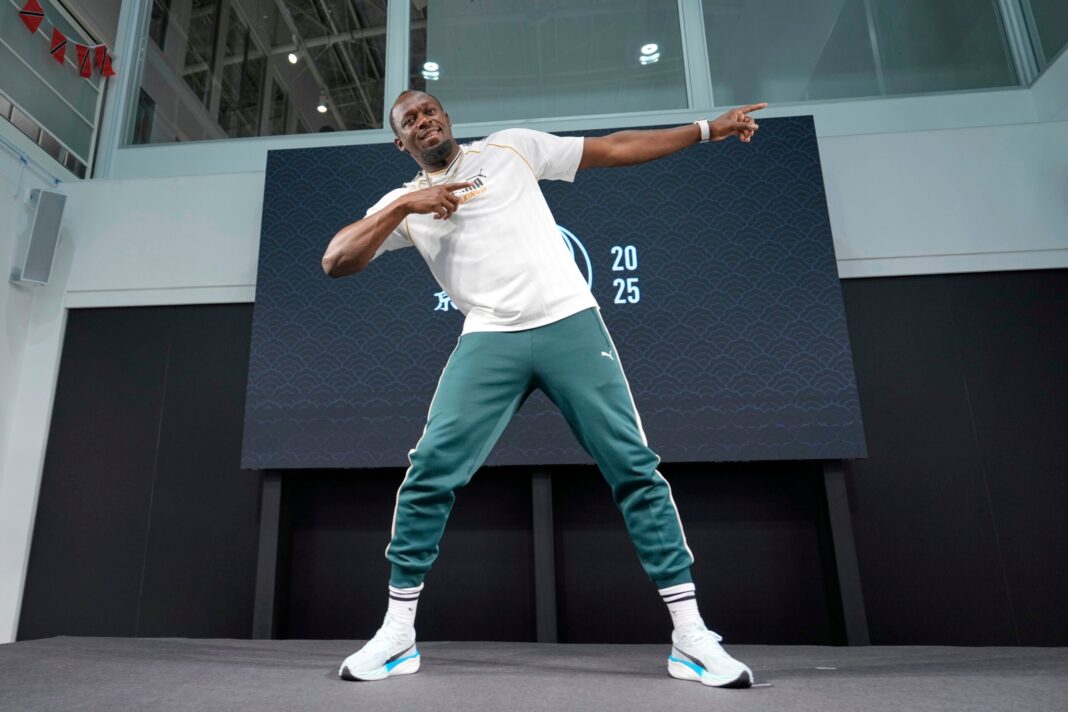In the world of athletics, few names resonate as loudly as Usain Bolt. Since he etched his name into the annals of track and field history at the 2009 World Championships in Berlin, where he clocked a blistering 9.58 seconds in the 100 meters and an astonishing 19.19 seconds in the 200 meters, his records have remained largely untouched. Even 16 years later, the question looms: will anyone ever surpass Bolt’s monumental achievements?
As the self-proclaimed fastest man in the world reflects on his legacy, he remains optimistic about the current crop of athletes. “No, I’m not worried,” Bolt said at a recent Puma event. His calm demeanor belies the pressure that today’s sprinters feel as they attempt to approach the elusive targets he set. Despite the emergence of talented athletes, he expresses skepticism about anyone breaking his records in the immediate future. “At this present moment, I don’t see any athlete able to break the record, so not worried,” he affirmed.
Since Bolt’s iconic performances, the landscape of sprinting has changed, yet the pursuit of his records remains a distant dream for many. Only Jamaican sprinter Yohan Blake has managed to run sub-9.7 seconds in the 100 meters, while his fastest 200-meter time stands still at 19.26 seconds—somewhat shy of Bolt’s staggering benchmark. The question remains: in this era of remarkable training and technological advancements, why hasn’t anyone come closer to toppling Bolt’s reign?
A notable contender in this ongoing quest is American sprinter Noah Lyles, who has openly declared his ambition to chase Bolt’s records. During the 2023 season, Lyles expressed confidence in achieving times of 9.65 in the 100 meters and 19.10 in the 200 meters. His bold statement stirred excitement in the athletics community: “I have a good reason to believe I’m going to do something I’ve never done before,” he stated. While Lyles snagged gold in both the 100 and 200 meters at the recent World Championships, he has yet to eclipse the 19.31 second mark established by Michael Johnson, which remains the American record.
This year’s fastest 100-meter time was notched by another Jamaican sprinter, Kishane Thompson, who clocked in at 9.75 seconds. As anticipation builds for the upcoming final, Thompson finds himself among formidable competitors, including Lyles, American Kenny Bednarek, and fellow Jamaican Oblique Seville. Bolt predicts a promising podium for Jamaica, saying, “It’s all about if they can execute — not listen to the noise and go execute.”
Excitingly, the 17-year-old Australian sprinter, Gout Gout, has also emerged as a promising talent. Sporting a running style reminiscent of Bolt’s, Gout has already surpassed Bolt’s own early times as a junior. However, Bolt emphasizes the challenges of transitioning from junior to senior competitions. “It’s always easy when you’re younger,” he remarked, warning that adapting to the senior level is a rigorous journey requiring the right support system.
Bolt also factors in the advancements in technology, noting that improvements in track surfaces and athletic footwear play a significant role in performance. Puma recently released findings suggesting that, had he been running in today’s shoes, Bolt could have clocked a staggering 9.42 seconds in his Berlin race. He believes the inevitable evolution of sport will someday lead to the breaking of records; however, he reassures fans that it won’t happen imminently. “Everything evolves in life, people trying to get better, trying to get faster,” he elaborated, underscoring the relentless pursuit of excellence that defines athletics.



